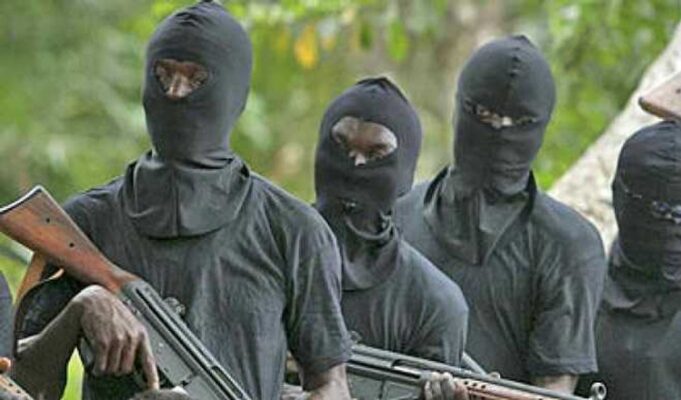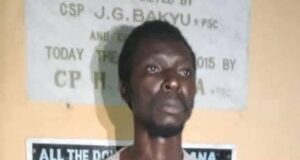Michael Adesiyan, a Deputy Director at the National Assembly Commission, shared his terrifying experience on Tuesday after spending more than a month in captivity with bandits.
Adesiyan, alongside his wife, was abducted from their home in Chikakore, a suburb of Kubwa in Abuja, on January 26, 2025.
He was rescued on April 7 after enduring 32 days in the bandits’ hideout.
Speaking to reporters at the National Counter-Terrorism Centre in Abuja, where 60 recently rescued victims were presented to the National Security Adviser, Nuhu Ribadu, Adesiyan recounted the harrowing ordeal.
Adesiyan urged the federal government to take steps to disarm and educate the criminals, suggesting that reintegration into society could help resolve the issue.
He noted that many of the bandits involved in the kidnapping were young, uneducated, and unaware of the consequences of their actions.
According to Adesiyan, the bandits were between the ages of 17 and 20 and were “stark illiterates” who did not even know how to count large sums of money.
Despite the huge ransom they demanded, he said they were completely unaware of the scale of their demands.
“I want to thank the government for rescuing us. I was chained for 32 days. I want to advise that the government should find a way to disarm or arrest them (the bandits), instead of confronting them,” Adesiyan said.
“They can send them to school. Some cannot even count one million. They are stark illiterates. They are young people of ages 17 and 21. They don’t know what they are doing,” he continued.
Adesiyan called for a focus on re-educating and re-orienting these young bandits, saying that they should be given the opportunity to learn a trade and be reintegrated into society rather than simply being killed.
“So if they can bring them out, if they want to learn a trade, they can let them do that, retrain them, reorient them, so that they can be useful to themselves,” he added.
When asked why the bandits were so insistent on receiving ransom payments, Adesiyan explained, “when they kill someone in your presence, you would give them anything they want. For instance, they killed my wife in my presence. If they request for your head in that situation, you will give it to them.”
Ishaya Kuka, the brother of Catholic Bishop of Sokoto Diocese, Rev. Fr. Matthew Kukah, was another of the 60 rescued victims.
Sharing his own story, Kuka expressed how close he came to losing his life.
“Thank God for what we did yesterday. Frankly speaking, I was already out of my mind, thinking I wasn’t going to see this world again due to how they were treating us in the bush. In the bush, we suffered too much. They used to chain us, two of us. If you are going to relieve yourself, you move with the other one,” Kuka said.
Kuka also explained the pressure the kidnappers exerted on their victims to pay ransom.
“About this money, people are saying they are not supposed to be giving money. It’s because of the pressure they are putting on you. If they beat you in the bush, it will make you say you’ll give money. Because if they discover that you don’t want to open your mouth and say you will give money, they will kill you. They will beat you. So, the pressure will be too much, and you would have to give,” he said.
Kuka expressed gratitude to the federal government for the rescue operation, stating, “It is because of the federal government we are out, if not, up till now, we would still be in the bush. So, we thank you very much for what you have done for us. God bless, thanks.”
Maj. Gen. Adamu Laka, the Coordinator of the National Counter-Terrorism Centre, provided details on the operation, stating that the 60 victims, which included 35 males and 25 females, were rescued on April 7 by troops from the 1st Division of the Nigerian Army.
The rescue operation was supported by other security and intelligence agencies.

















